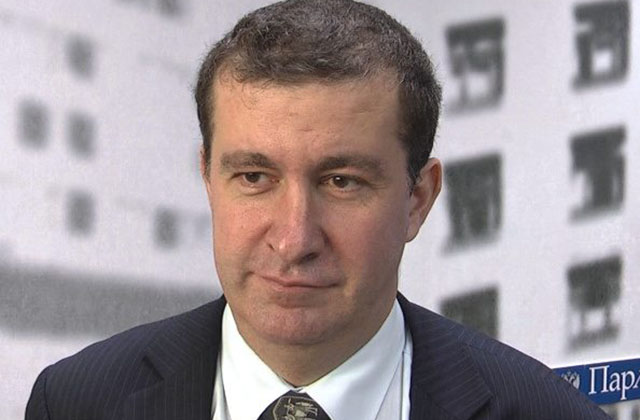Karabakh Conflict Negotiations have been Receded to the Background by the Conflicting Countries: Skakov

“Nothing outstanding is ongoing around NK conflict settlement process, it develops with traditional logic,” Russian political scientist, expert on the South Caucasus issues, told 168.am, reflecting to settlement negotiations and the meeting of OSCE MG Co-Chairs to be held in Moscow on September 8.
Maria Zakharova, Russian MFA official representative, stated that a meeting of OSCE MG Co-Chairs is planned by Russia on September 8 in Moscow, with the participation of Igor Popov. “The Co-Chairs hope to meet Sergey Lavrov and other officials in Moscow next week. In Moscow we intend to discuss the agreements reached in Vienna and St. Petersburg between presidents of Armenia and Azerbaijan. We also plan to discuss further steps of Karabakh settlement around the negotiation table,” U.S. Co-Chair James Warlick said.
Alexander Skakov stated that current inactivity in the settlement process was predictable, because as a result of presidential meetings in Vienna and St. Petersburg considerable progress in the process wasn’t recorded. “In fact, the presidents aren’t meeting, which may have a few reasons. Firstly, in their previous meetings they didn’t initiate any process, which should be continued, and discordances continued. Secondly, other issues have emerged, although there was an agreement to strengthen ceasefire. I tend to consider that we deal with the first reason. During the previous meetings edges have been sought to approach the sides, maybe those edges weren’t found, MG didn’t show enough activeness, other political processes are developing in the conflicting countries—Parliamentary elections in Armenia, Constitutional amendments in Azerbaijan are ahead. Usually in case of such activities the countries left negotiations behind, here the Co-Chairs have much work to do. We should remember that the conflicting countries also have numerous issues in the region, all these complicate the progress in Karabakh,” Alexander Skakov said.
According to the latter, OSCE MG Co-Chairs don’t show enough activeness. To the question whether the venue has connection with Russia’s leading positions in ongoing settlement process, Skakov replied that Russia assumed leadership at certain stage of the settlement. He also stated that the Co-Chairs have meetings mainly in European countries. ”Maybe it was taken into consideration that currently Moscow, assessing the seriousness of the moment, doesn’t save any effort to bring the sides to the negotiation table, also the fact that in St. Petersburg Vienna agreements have been partially implemented. I consider, not the venue, but the fact that the Co-Chairs will discuss ongoing situation in the settlement process, is important. In fact, it’s not in such a good condition, as the planned presidential meeting didn’t take place,” Skakov said.
Reflecting to the talks that Russia urges Armenia a document requiring concessions, the Russian analyst said if it refers to territorial concessions, it has always been touched upon. “It’s not news. To say that Russia urges some package or document, is not correct either, in this issue Moscow is united with its U.S. and French counterparts, as all talks on that are officially denied by Russia. Moreover, such documents are put on the negotiation table, as soon as the contact line stabilizes. They couldn’t discuss such documents during the meetings immediately following the April war; during those meetings the sides didn’t even agree on ceasefire strengthening,” Alexander Skakov concluded.
By Araks Martirosyan

























